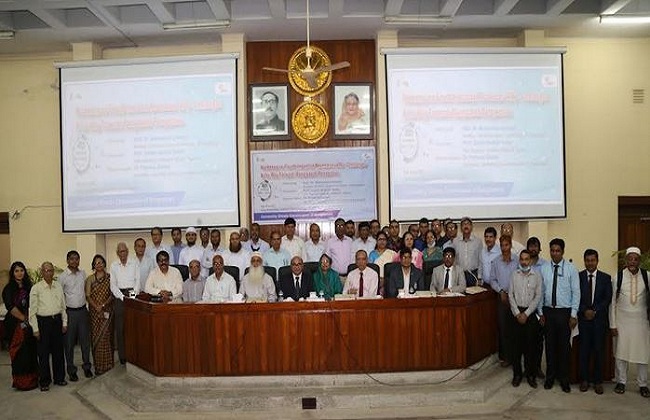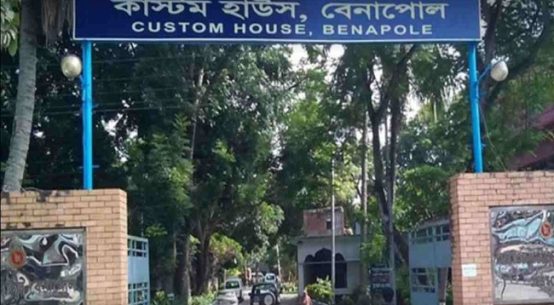
Concerted efforts of teachers, students and researchers can be the best way of materializing the dreams of digital Bangladesh, one of the main ingredients of 4th Industrial Revolution (4IR), through engaging in the 4IR for cherished development of the nation.
With this engagement, implementation of ‘Sonar Bangla’ dreamt by Bangabandhu and attaining the target of elevating Bangladesh to a developed country by 2041 under the competent leadership of Prime Minister Sheikh Hasina could be possible.
Academics and scientists came up with the observation while addressing a daylong workshop titled “Fourth Industrial Revolution (4IR), Challenges and the Way Forward: Bangladesh Perspective” held at Rajshahi University (RU) Wednesday.
University Grant Commission (UGC) organized the workshop at RU Senate Building, largely attended by educationists, teachers, students and others concerned from all over the country.
UGC Member Prof Muhammad Alamgir addressed the opening ceremony as chief guest, while RU Vice-chancellor (VC) Prof Golam Sabbir Sattar was in the chair.
Prof Kazi Mohaimen-Us-Saquib from the Institute of Information and Technology in Dhaka University presented a keynote paper styled ‘Knowledge Dominates the Period of 4IR (AI, NanoTechnology, Bio- Sciences and Related Areas)’, while Prof Afroza Parveen from Khulna University of Engineering and Technology presented another paper on ‘Challenges of 4IR and the Way Forward’ in two technical sessions as resource persons.
In his remarks, Prof Muhammad Alamgir said there is a need to develop a map for establishing linkages between 4IR technologies’ potential and the attainment of SDGs, targets, and indicators.
He also said the success of developing the fine-tuned innovation system to leverage 4IR innovations for meeting SDGs, through profit-making competition of firms in taking ideas to market, will take Bangladesh to the orbit of the innovation economy.
Progress along this line is crucial for Bangladesh to increase total factor productivity and drive economic growth for meeting its goals targeting 2030 and 2041.
Prof Alamgir told the audience that Bangladesh’s economic success over the last a decade has been quite impressive. The commercialization of low skilled labor has been at the core of this success.
The engagement of low skilled labor into productive activities has not only accelerated economic growth but also increased financial resources at the bottom of the pyramid.
“The digital era is characterized by technology, which increases the speed and breadth of knowledge turnover within the economy and society,” he added.
RU VC Prof Golam Sabbir said the 4IR can play a vital role towards elevating the socio-economic condition of Rajshahi region besides infusing dynamism into its industrial sector.
Agro-based economy of the region is appropriate for facing the challenges of 4IR together with contributing to the country’s economy.
Prof Sabbir Sattar said Bangladesh is marching towards the 4IR. Bangladesh has the capability. In the process of adopting 4IR technologies, Bangladesh has recently achieved significant growth in various sectors including the IT services industry as well as the healthcare services.
He also focused on transformation, top global perceived risks, and how single innovation changes the industry landscape.


